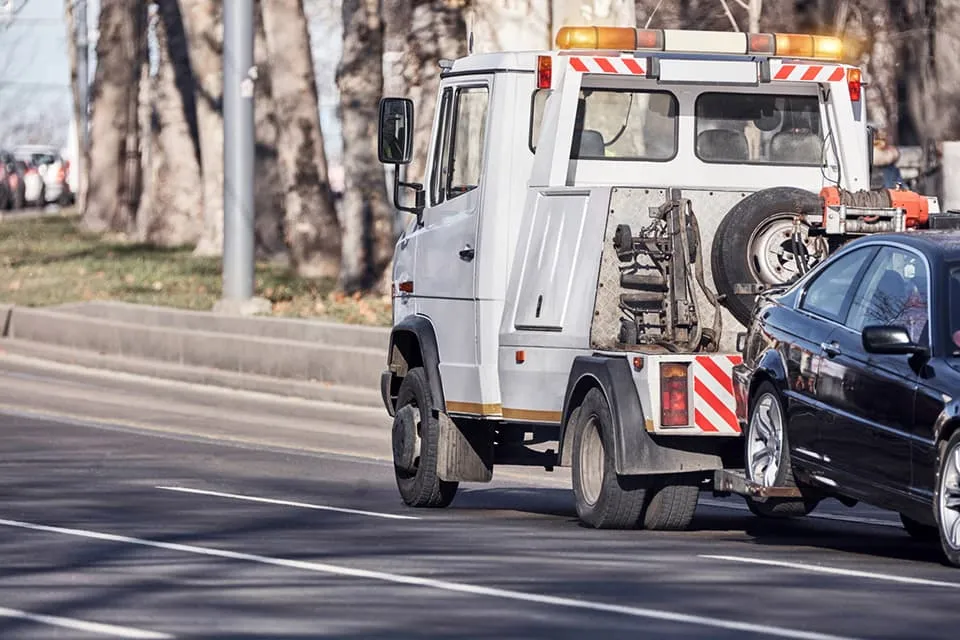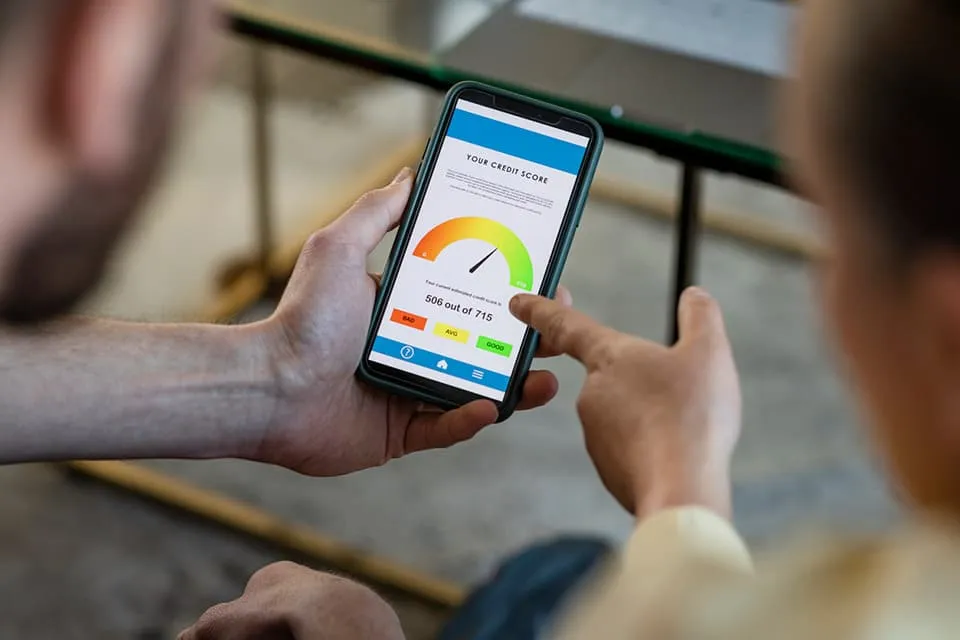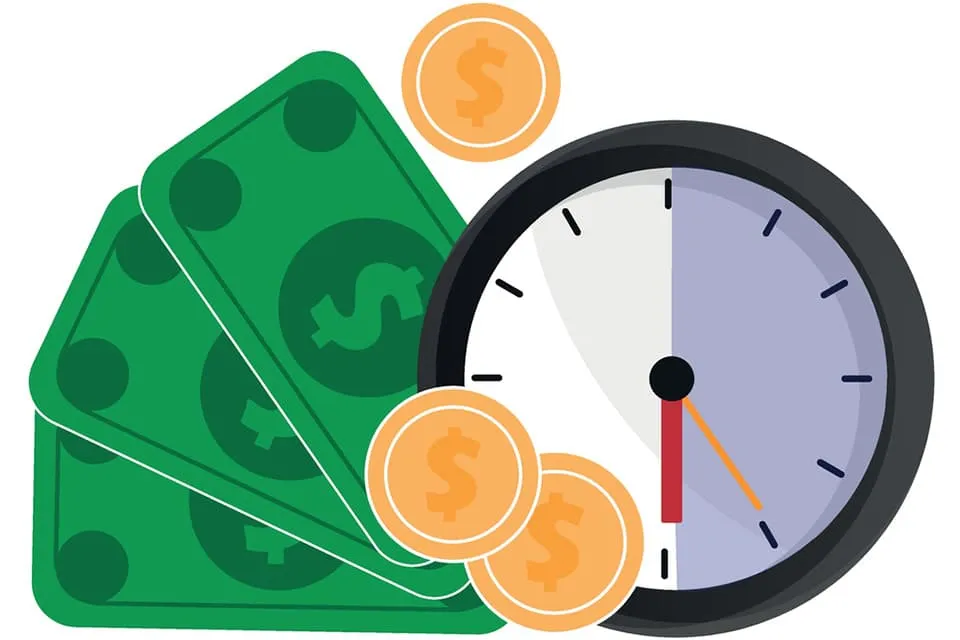Car Repossession:
What Is It, and How Will It Affect My Credit?

If you drive your vehicle through a lease, lender, or other financing plan, you'll need to make regular payments on the amount you owe. If you fail to do so, you are at risk of having your car repossessed; this involves the lending party taking back ownership of the car due to default. Car repossession can be an incredibly stressful situation that you'll want to avoid at all costs. If you don't, it can have massive repercussions for your credit and hinder your ability to get another vehicle.
How Does Car Repossession Work?
Most lending contracts will include a clause related to repossession in which your lender will set out the criteria for what they consider a default. Some will give you a bit of leeway, but most of the time your car is at risk of repossession after a single missed payment.
Once that payment is missed, your lender has the right to take, or repossess, your vehicle until payment is received. They will likely try to contact you first to try to get the money that's owed, but if you fail to respond, they will have a third-party company retrieve the car from your residence. This can happen at any time, so it's important to respond when your lender reaches out about non-payment.
Missed payments aren't the only way to lose ownership of your car; many lenders require some level of insurance on the vehicles they finance, and failing to maintain your policy could also lead to repossession. No matter how the car repossession happens, it will likely have a significant impact on your credit.
How Can a Repossession Affect My Credit?

Unfortunately, a repossession can weigh your credit down for up to seven years after you default on your loan. Even if you have no other negative flags on your credit, a default and subsequent car repossession can send your credit score into a freefall. If your account is sent to collections, this can cause further complications. Overall, this poor credit score can make it difficult or impossible to get another vehicle financed. If you aren't careful, you could end up stranded without reliable transportation.
A hit to your credit and losing your car aren't the end of default-related woes; if the sale of your vehicle doesn't cover the amount left on the loan, your lender may come for other collateral. Unless you can make payments, they could have the right to take other pieces of your property and sell them until the balance is paid in full.
What Should I Do If My Car is Going to be Repossessed?

If you believe that you are in danger of default or car repossession, you need to take action fast. The absolute best plan is to never enter into an agreement that exceeds your budget; you can use loan and lease calculators like the ones provided by GoodCar to ensure any contract you sign is within your means. If you've already entered into an agreement, be sure to make your payments on time. This will allow you to rest easy knowing that your vehicle is safe.
If you feel yourself falling behind on your payments, don't panic. Mistakes happen, and there are several steps you can take to stop a car repossession before it occurs.
Look at Your State's Repossession Laws
Many states require notification prior to any repossession; check to see if your state has these laws in place, and look at what procedures precede such an act. This can help you know what legal steps to take in the case of an illegal repossession.
Get in Contact With Your Lender

Once you've checked your local laws it's time to call your lender. Even if you are in danger of getting behind on payments, speaking to your lender ahead of time and discussing your situation can be a huge help. Some lenders will be sympathetic, and even if they aren't, most will want to avoid the arduous process of car repossession and sale. If possible, ask about loan deferment, which allows you to make payments later once you get the necessary funds. Remember, do this before you miss a payment; a lender is much more likely to be understanding if you get ahead of the problem.
Consider Refinancing
If you have the money and are willing to make an investment that could save you cash in the future, consider refinancing your loan. This involves paying off your current loan and renegotiating for another with a lower interest rate. This is only recommended if you currently have good credit; if you have any history of default in the past, getting a lower interest rate may not be possible.
If Necessary, Surrender Your Car Voluntarily
If your state requires previous notification and you are notified about an impending repossession, don't fight it. A lender is not going to be open to negotiations if you run, and voluntary surrender makes the entire situation far less stressful. It's also possible that a voluntary surrender could lessen the blow to your credit; if the repossession is coming, call your lender and let them know you'll give the car up willingly.
Car Repossession Frequently Asked Questions
Is there a Statute of Limitations on Car Repossession?
Every state has different laws when it comes to the statute of limitations on car repossession. The lower end of this range is 3 years, with the average being closer to 6. Some states last even longer; it's always best to look online or through a court office to see what your state's statute of limitations is.
Can I Get Financial Assistance for Car Repossession?
If you get in contact with your lender it's possible to refinance your loan or get a deferment, depending on your situation. If you contact your lender before you go into default they are more likely to negotiate. A deferment can delay the need for payment until you get the money necessary to consistently pay off your loan, and refinancing can help you get a better interest rate on the loan itself. Depending on your area, there may be car payment relief programs in place. Search for these programs online and see if your city or state offers any form of assistance; if not, contact your lender to see if they can help.
What is a Car Repossession Lookup?
A car repossession lookup involves getting a vehicle history report, which can show you whether the vehicle you plan to purchase has ever been repossessed. These reports can show you a wide range of other details about your car as well, including:
Title Records
Junk/Salvage Records
Insurer "Total Loss" Records
Pricing
Sales History
Problem Checks
Auto Specs
Location History
NHTSA Crash Test Ratings
NHTSA Recalls
Awards and Accolades
Manufacturer Information
When they Repossess Your Car, What Happens?
Once payments have been missed and your loan has been declared in default, your lender will likely send a repossession team to your residence or place of work. This team may be under the employ of the lender themselves, or more likely, a third-party business dedicated solely to repossession. The repossession professionals will then enter your car and remove it, sending you any of your personal property within the car to you later. Lenders don't have the right to sell your personal possessions, only the vehicle; they may require more collateral later, but will send any property you have within the vehicle initially.
How Long Before a Car Becomes Repossessed?
Depending on how strict your lender is, you may have up to 90 days after your initial missed payment before they repossess your vehicle. Others may start the process the day you miss your first payment; stricter lenders and dealerships will even put tracking devices within the vehicle to make the repossession process quicker and easier. Another device these dealers will often put in loaned vehicles is something known as a "kill switch". This can disable your vehicle in the case you try to avoid repossession.
Should I Pay Off a Repossession?
If possible, you should always pay off a repossession. Paying your repo off can help rebuild your credit score and reduce the debt you have remaining on the vehicle. If paid in full, it's even possible to have the repossession removed from your credit report entirely. This can be discussed with your lender, who may be willing to negotiate a settlement to get the process wrapped up quickly.
How Many Car Payments Can You Miss Before Repo?
While some lenders may allow you to miss several payments before repossession, this isn't always the case. It's well within the rights of a lender or dealership to repossess your vehicle after a single missed payment. Check the terms of your lease or loan agreement to see what your repossession clause includes, and if possible, don't agree to contracts with aggressive repo terms.
Does a Repossession Stay On Your Credit If You Pay it Off?
It's possible to get a repossession removed from your credit report if you pay it off or reach a settlement with your lender. If you don't it can affect your credit score for up to seven years after the initial date of your default. Lenders will usually report a repossession to credit bureaus as soon as possible, which can begin affecting your credit in as little as 30 days.
FREE Vehicle Search
- Accidents
- Problem Checks
- Title Records
- Recalls
- Values
- Specs
-
InfoPay, Inc. (dba GoodCar) is an Approved NMVTIS Data Provider
-
-


























